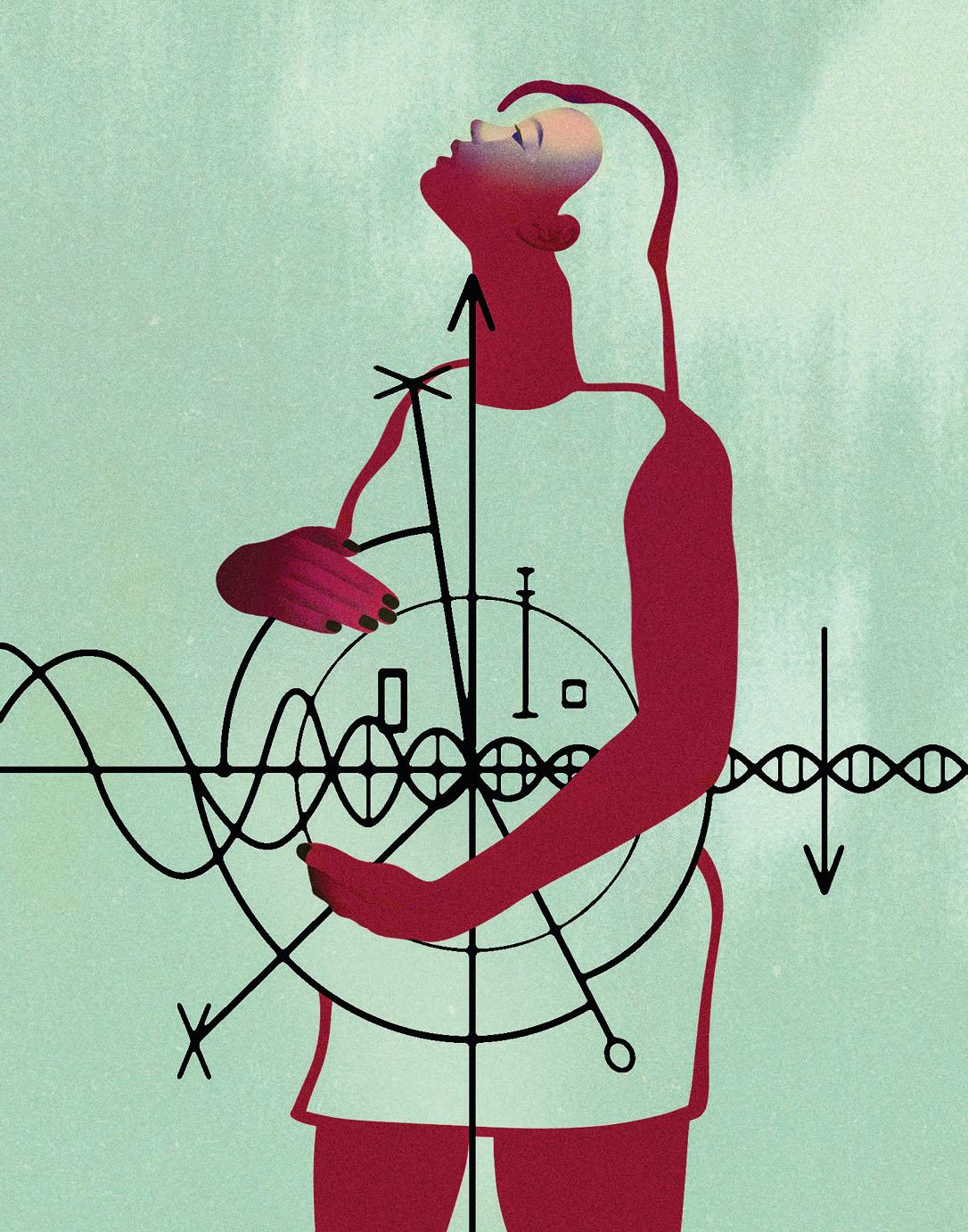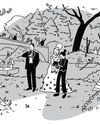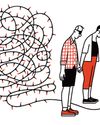SCREEN TIME.

When the writer Amanda Hess was twenty-nine weeks pregnant with her first child, her doctor, looking at an ultrasound, “saw something he did not like.” He suspected a rare genetic condition; Hess underwent an amniocentesis and then an MRI. She sought out a second opinion—which augured catastrophe and, it turned out, was completely wrong—and a third, steadying one. Her son was eventually given a diagnosis of Beckwith-Wiedemann syndrome, which puts babies at higher risk for hypoglycemia and certain cancers and makes their little bodies grow fast; often, their tongues become too large for their mouths, requiring corrective surgery.
Extensive testing showed no genetic or environmental cause for her son's condition, yet Hess felt somehow culpable. “I worried over what I had done to trigger it, over the dark secret of my body that had determined his suffering,” she writes in her memoir, “Second Life: Having a Child in the Digital Age” (Doubleday). Her apprehensions were reinforced by her medical chart, which logged ominous-seeming F.Y.I.s that included “Advanced maternal age” (she was thirty-five), “Teratogen exposure” (owing to a tablet of the anti-anxiety medication Ativan, taken at the six-week mark), and “Anxiety during pregnancy.” These facts revealed nothing about her baby’s prospects, yet they followed Hess around like a misdemeanor rap sheet. Immediately after her son's birth, by C-section, a labor-and-delivery nurse turned to her—“the paralyzed, split-open, twenty-second-old mother”—and asked, “When did you stop taking the Ativan in pregnancy?”
Dit verhaal komt uit de April 28, 2025 editie van The New Yorker.
Start your 7-day Magzter GOLD free trial to access thousands of curated premium stories, and 9,500+ magazines and newspapers.
Al abonnee ? Inloggen
Dit verhaal komt uit de April 28, 2025 editie van The New Yorker.
Start your 7-day Magzter GOLD free trial to access thousands of curated premium stories, and 9,500+ magazines and newspapers.
Al abonnee? Inloggen

ELIAS
Fiction
LETTER FROM FRANCE: SCHMEAR CAMPAIGN
Is a European conspiracy behind a ban on a virally popular hazelnut spread?
FIRST THINGS FIRST DEPT.ARTIFICIAL INTELLIGENCE
At four o'clock on a recent Friday, Kevin McCullough found himself staring at a line of text on a poster in the Graham Avenue subway station, in Williamsburg.

CONTINUING EDUCATION DEPT.TUSKS UP
In early May, the N.H.L.’s newest team, a year-old Salt Lake City-based franchise provisionally known as the Utah Hockey Club, unveiled its official name and mascot, after considering such options as Black Diamonds, Blast, Blizzard, Canyons, Caribou, Freeze, Frost, Fury, Glaciers, Hive, Ice, Mountaineers, Outlaws, Powder, Squall, Swarm, Venom, and Yeti. Behold: the Utah Mammoth.

AN UPDATE ON OUR FAMILY
First, a sincere thanks to the friends, neighbors, and homeowners' association representatives who have reached out during the past four months. We've heard from so many of you—a couple of times via a note tied to a rock thrown through our window—as we've navigated this journey.

STILL LIFE
The “forever business” of Green-Wood Cemetery.

THE HEAT OF THE MOMENT
To stop violent crime, we need to grasp what really drives it.

BROTHERS OF THE CLOTH
The Met's take on Black male style.

AWAKENINGS
Whatever happened to Margaret Fuller?

ANNALS OF AVIATION - TURBULENCE
Amelia Earhart’ husband pushed her to keep tempting fate for the sake of fame.
